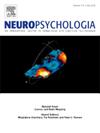Intuitive physical reasoning is not mediated by linguistic nor exclusively domain-general abstract representations
IF 2
3区 心理学
Q3 BEHAVIORAL SCIENCES
引用次数: 0
Abstract
The ability to reason about the physical world is a critical tool in the human cognitive toolbox, but the nature of the representations that mediate physical reasoning remains debated. Here, we use fMRI to illuminate this question by investigating the relationship between the physical-reasoning system and two well-characterized systems: a) the domain-general Multiple Demand (MD) system, which supports abstract reasoning, including mathematical and logical reasoning, and b) the language system, which supports linguistic computations and has been hypothesized to mediate some forms of thought. We replicate prior findings of a network of frontal and parietal areas that are robustly engaged by physical reasoning and identify an additional physical-reasoning area in the left frontal cortex, which also houses components of the MD and language systems. Critically, direct comparisons with tasks that target the MD and the language systems reveal that the physical-reasoning system overlaps with the MD system, but is dissociable from it in fine-grained activation patterns, which replicates prior work. Moreover, the physical-reasoning system does not overlap with the language system. These results suggest that physical reasoning does not rely on linguistic representations, nor exclusively on the domain-general abstract reasoning that the MD system supports.
直观的物理推理并不以语言为中介,也不完全是一般领域的抽象表征。
对物理世界进行推理的能力是人类认知工具箱中的一个关键工具,但调解物理推理的表征的本质仍存在争议。在这里,我们使用fMRI通过研究物理推理系统和两个特征良好的系统之间的关系来阐明这个问题:a)域通用多需求(MD)系统,它支持抽象推理,包括数学和逻辑推理;b)语言系统,它支持语言计算,并被假设为调解某些形式的思维。我们重复了先前的研究结果,即前额叶和顶叶区域的网络与物理推理密切相关,并在左额叶皮层中发现了一个额外的物理推理区域,该区域也包含MD和语言系统的组成部分。关键的是,与针对MD和语言系统的任务的直接比较表明,物理推理系统与MD系统重叠,但在细粒度的激活模式中与之分离,这复制了先前的工作。此外,物理推理系统并不与语言系统重叠。这些结果表明,物理推理不依赖于语言表征,也不完全依赖于MD系统支持的领域一般抽象推理。
本文章由计算机程序翻译,如有差异,请以英文原文为准。
求助全文
约1分钟内获得全文
求助全文
来源期刊

Neuropsychologia
医学-行为科学
CiteScore
5.10
自引率
3.80%
发文量
228
审稿时长
4 months
期刊介绍:
Neuropsychologia is an international interdisciplinary journal devoted to experimental and theoretical contributions that advance understanding of human cognition and behavior from a neuroscience perspective. The journal will consider for publication studies that link brain function with cognitive processes, including attention and awareness, action and motor control, executive functions and cognitive control, memory, language, and emotion and social cognition.
 求助内容:
求助内容: 应助结果提醒方式:
应助结果提醒方式:


